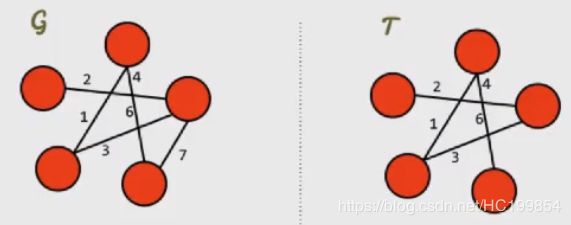- C++基础语法总结
清梚不喝粥
C++c++算法开发语言
语言学习的基础思路:helloworld:打印语句数据类型/变量输入数据数组函数结构:返回值参数值独有特性:java/C++面向对象C语言/C++:指针结构体数据结构学习顺序:数组对象/结构体链表链表和数组可以实现的更加有性格一点的结构:队列栈二叉树学习一些复杂的或者组合形式的:各种树哈希表集合数据类型/变量一、基本数据类型1.整数类型:-char:通常是1个字节,表示字符或小整数范围。-shor
- C语言数据结构学习大纲——人工智能方向
小宝哥Code
数据结构与算法c语言数据结构学习
C语言数据结构学习大纲学习C语言数据结构是计算机科学和软件开发的基础之一。以下是一个详细的C语言数据结构学习大纲,从基础概念到高级数据结构,帮助你系统性掌握数据结构,并通过C语言实现。第一部分:数据结构基础1.计算机存储与数据结构概述什么是数据结构?数据结构的分类(线性结构vs.非线性结构)数据结构与算法的关系时间复杂度与空间复杂度(Big-O记法)C语言指针与动态内存分配(malloc()、fr
- 数据结构学习笔记(3):栈
别等天上俯瞰
数据结构
前言栈的逻辑结构其实也是线性表,只不过它的插入和删除操作受限,如下图所示:栈只有一端能够插入和删除,这端叫做栈顶;而不同操作的一端就称为栈顶。所以,后面进入栈的元素能够被优先删除,这种特性被称为后进先出(LastInFirstOut,LIFO)。顺序栈顺序栈,顾名思义,就是用顺序存储实现的栈,它使用一连串连续的存储单元来存储栈元素,同时加入一个指针,表明现在栈的元素个数。2.1顺序栈的定义顺序栈的
- Python 数据结构学习指南
顾月澜
python数据结构开发语言
Python数据结构学习指南Python作为一种高级编程语言,其简洁的语法和丰富的功能使得它在各类开发中都得到了广泛应用。掌握Python中的数据结构是学习Python编程的基础,也是进行更复杂算法与项目开发的关键步骤。本文将介绍Python中常用的数据结构,并讲解如何有效地使用它们。一、什么是数据结构?数据结构是指计算机中用于存储、组织和管理数据的方式。不同的应用场景对数据结构的要求不同,选择合
- 数据结构学习记录-队列
墨楠。
#C语言数据结构研习汇数据结构学习
队列的基本概念1、队列是操作受限的线性表2、队头:允许删除的一端3、队尾:允许插入的一端4、空队列:不含任何元素的空表5、特点:先进先出、FIFO6、应用场景:栈:解决括号匹配;逆波兰表达式求解;递归改非递归等等队列:公平排队,广度优先遍历等等队列的结构:队列的具体实现结构比较灵活,只要遵循先进先出原则即可。顺序表的方式实现,如果用数组表示,虽然尾插数据比较方便,但当头删数据时,还要移动剩余元素,
- 数据结构学习记录-数据结构概念
墨楠。
#C语言数据结构研习汇数据结构学习
1数据结构:数据结构是计算机存储,管理数据的方式。数据必须依据某种逻辑联系组织在一起存储在计算机内数据结构研究的就是这种数据的存储结构和数据的逻辑结构。1.1数据的逻辑结构:逻辑结构指的是数据本身之间的关系集合:数据元素除了属于同一个集合外,没有其他联系;线性关系:数据元素之间呈现的是一对一的关系;树型:数据元素之间呈现的是一对多的关系;图型(网状):数据元素之间呈现的是多对多的关系;1.2数据的
- Java中HashSet、HashMap和HashTable的区别
Sueko
日常学习笔记Javajava开发语言
今天写每日一题时,看到题解用到了HashSet。之前数据结构学习的时候并没有区别这三者,于是在这里做一个整理。是Leetcode上的这题720.词典中最长的单词,等我写完题解也会把题解再贴上来。Java中HashSet、HashMap和HashTable的区别1.官方文档对这三者的介绍1.1Hashtable1.2HashMap1.3HashSet2.三者之间的区别2.1Hashtable和Has
- 计算机专业考研书目(中科大)
FQLSY
考研408计算机学科专业基础综合一、数据结构1.教材:《数据结构》严蔚敏清华大学出版社清华大学严蔚敏的这本数据结构的教材是国内数据结构教材的权威。也是国内使用最广,其广度远远超越其他同类教材,计算机考研专业课命题必定以它为蓝本。这一本数据结构是2007年的最新版本,完全适合任何学校的考研数据结构的复习之用,是数据结构学习最权威的教材。2.辅导书:《算法与数据结构考研试题精析(第二版)》机械工业出版
- 数据结构学习--01
酬谢神明则必安
学习数据结构
数据结构是计算机存储、组织数据的方式,它指的是相互之间存在一种或多种特定关系的数据元素的集合。数据结构主要是研究非数值性程序设计中计算机操作的对象及其相互间关系和运算的学科。数据之间的相互关系,包括三个方面的内容。逻辑结构:表示数据运算之间的抽象关系(邻接关系,从属关系等),按每个元素可能具有的直接前驱和直接后继,将逻辑结构分为线性结构和非线性结构。存储结构:逻辑结构在计算机中的具体实现方法,分为
- 数据结构学习笔记 2-1 二叉树(Binary Tree)与 LeetCode真题(Java)
小成同学_
数据结构与算法数据结构二叉树leetcodejavadfs
喜欢该类型文章可以给博主点个关注,博主会持续输出此类型的文章,知识点很全面,再加上LeetCode的真题练习,每一个LeetCode题解我都写了详细注释,比较适合新手入门数据结构与算法,后续也会更新进阶的文章。课件参考—开课吧《门徒计划》2-1二叉树(BinaryTree)与经典问题二叉树基础知识树形结构树的结构就像是一个链表,但节点的指向由一个变为了多个:二叉树度是图中的概念,我们可以理解为边,
- 数据结构,图(用图教你秒懂图的知识)
IC00
数据结构数据结构c语言c++有向图后端
数据结构学习,图(基础篇)前言:前面我们把树的知识全部学完了,今天我们学习图,如果不算算法,图是是我们最后一种要学的“数据结构”,图是一种非线性数据结构,它比树状结构更复杂,前面我们学习的知识都是一对一或者一对多的关系,今天要学的是多对多的关系,通常用于表示网状结构的数据。其实我们前面学过的都阔以看作特殊的图,图在很多邻域都用的到,博主之前学网络的时候广域网就是网状,就是表示不止一条通道。每日一遍
- 数据结构——顺序栈和链式栈的简单实现和解析(C语言版)
行稳方能走远
数据结构与算法
摘自:数据结构学习——顺序栈和链式栈的简单实现和解析(C语言版)作者:正弦定理发布时间:2020-11-2621:26:49网址:https://blog.csdn.net/chinesekobe/article/details/110205257数据结构——栈的简单解析和实现一、概念二、入栈(push)三、出栈(pop)四、顺序栈简单实现(1)进栈操作(2)出栈操作一、概念本篇所讲解的栈和队列属
- 数据结构学习——顺序栈和链式栈的简单实现和解析(C语言版)
正弦定理
数据结构数据结构栈
数据结构——栈的简单解析和实现一、概念二、入栈(push)三、出栈(pop)四、顺序栈简单实现(1)进栈操作(2)出栈操作一、概念本篇所讲解的栈和队列属于逻辑结构上的划分。逻辑结构分为线性结构、非线性结构线性结构:有且仅有一个开始节点和一个终端节点,每个节点最多只有一个直接前驱和一个直接后继。代表结构:栈、队列非线性结构:一个节点可能有多个直接前驱和多个直接后继。代表结构:树、图堆栈(英语:sta
- 数据结构学习日记三:树
明々天
数据结构数据结构学习
五、树1、静态查找1.1顺序查找:O(n)哨兵的好处是,可以只靠自然的循环顺序进行查找,实现当碰到哨兵自动退出循环的效果。无哨兵的时候,循环的条件需要多一条分支判断,防止数组访问越界。intSearch(ListL,ElementTypeK){//在L[1]到L[n]中查找kinti;L->Data[0]=K;//建立哨兵for(i=L->Length;L->Data[i]!=K;i--);ret
- 我要成为嵌入式高手之2月3日Linux高编第一天!!
7.25!
linuxc语言
学习框架一、IO编程多任务编程(进程、线程)网络编程数据库编程二、数据结构学习笔记Linux软件编程:一.Linux1、Linux:操作系统的内核,真正的操作系统叫Ubuntu、Redhat、CentOS.....内核(纯c实现的代码):管理CPU、内存、硬件设备、文件系统,进行任务调动系统调用:Linux内核当中的函数应用方向:1、服务器,2、嵌入式2、Shell:保护操作系统的内核(用户和Li
- 第13章 集合与数据结构
黎明的前夜
Java从基础到强化数据结构javaintellij-idea算法
第13章集合与数据结构学习目标掌握List接口的常用方法能够说出List接口的常用实现类集合的区别能够说出Set接口的常用实现类集合的区别能够说出List系列与Set系列集合的区别能够说出Map接口的常用实现类集合的区别能够说出Set系列与Map系列集合的关系能够说出Collection系列与Map系列集合的区别能够画出Collection系列集合的关系图能够画出Collection和Map等所有
- 区块链学习笔记2——BTC中的数据结构
polarday.
#比特币区块链数据结构比特币
区块链学习笔记2——BTC中的数据结构学习视频:北京大学肖臻老师《区块链技术与应用》笔记参考:北京大学肖臻老师《区块链技术与应用》公开课系列笔记——目录导航页本文主要介绍四种数据结构:Hashpointers、Blockchain、Merkletree、BlockHashpointers(哈希指针)哈希指针与普通指针类似,它除了保存地址之外还保存哈希值Blockchain(区块链)区块链中区块与区
- 数据结构笔记2
幽径微澜
数据结构python数据结构笔记
来自《Python数据结构学习笔记》(张清云编著)第五章队列和栈5.1队列5.1.1主要作用:解耦,使程序实现松耦合(一个模块修改不会影响其他模块)提高程序的效率循环队的入队算法:tail=tail+1如果tail=n+1,则tail=1如果head=tail,尾指针和头指针重合,表示元素已装满队列,实行“上溢”出错处理;否则Q(tail)=X,结束整个过程,X表示新的出入元素。队列的基本操作:(
- 数据结构笔记3
幽径微澜
数据结构python数据结构笔记
来自《Python数据结构学习笔记》(张清云编著)第五章队列和栈5.2栈又称堆栈,是一种运算受限的线性表。5.2.2入栈和出栈Stack():建立一个空的栈对象push():把一个元素添加到栈的最顶层pop():删除栈顶层的元素,并返回这个元素peek():返回顶层的元素,并不删除它isEmpty():判断栈是否为空size():返回栈中元素的个数classStack(object):"""栈""
- 数据结构学习记录
苟盛儿
学习
思维导图数据结构练习定义一个"简单宏"或宏函数,实现两个数交换1#include2#include3#include4#defineChange(x,y)do{inttemp=x;x=y;y=temp;}while(0)5intmain(intargc,constchar*argv[])6{7inta=100;8intb=200;9printf("beforechange:a=%db=%d\n",
- C++类的简单学习
猪蹄手
c++学习开发语言
C语言结构体中只能定义变量,在C++中,结构体内不仅可以定义变量,也可以定义函数之前在数据结构学习中,我们用C语言方式实现的栈,结构体中只能定义变量;现在以C++方式实现,会发现struct中也可以定义函数。我们看如下代码:typedefintDataType;structStack{voidInit(intcapacity=4){arr=(DataType*)malloc(sizeof(Data
- 数据结构学习之单向链表(各种操作合集)
少年维克多
数据结构学习系列数据结构学习
单向链表(各种操作合集)单向链表的两种创建方式方式1:根据函数的返回值创建通过返回值返回所申请的头结点所在的内存空间首地址,即创建单向链表的头结点,代码如下:示例代码:node_t*create_link_node_1(){node_t*phead=(node_t*)malloc(sizeof(node_t));if(NULL==phead){printf("内存分配失败\n");exit(-1)
- 数据结构学习之双向链表(各种操作合集)
少年维克多
数据结构学习系列编程基础数据结构学习链表
双向链表(各种操作合集)双向链表的两种创建方式:方法1:根据函数的返回值创建通过返回值返回所申请的头结点所在的内存空间首地址,即创建双向链表的头结点,代码如下:示例代码:node_t*create_dplink_node_1(){node_t*phead=(node_t*)malloc(sizeof(node_t));if(NULL==phead){printf("内存分配失败\n");exit(
- 数据结构学习之顺序表(各种操作合集)
少年维克多
数据结构学习系列编程基础面试题数据结构学习顺序表
顺序表(各种操作合集)顺序表的两种创建方式:方式1:根据函数的返回值创建通过返回值返回所申请的内存空间的首地址;示例代码:list_t*create_seq_list_1(){list_t*p=(list_t*)malloc(sizeof(list_t));if(NULL==p){printf("内存分配失败\n");exit(-1);}memset(p,0,sizeof(list_t));ret
- 数据结构笔记1
幽径微澜
python笔记数据结构链表
来自《Python数据结构学习笔记》(张清云编著)第一章数据结构基础1.逻辑结构集合:结构中的数据元素除了同属于一种类型外,别无其他关系线性结构:数据元素之间一对一的关系树形结构:数据元素之间一对多的关系图状结构或网状结构:结构中的数据元素之间存在多对多的关系2.物理结构顺序存储结构链接存储结构数据索引存储结构数据散列存储结构(Hash存储)3.常用数据结构数组(Array)栈(Stack)队列(
- 【C语言进阶】【小项目】实现一个通讯录【C语言知识点汇总项目】通过这个项目,掌握C语言重要知识点
@背包
C语言深度解剖高质量干货博客汇总c语言
【C语言进阶】【小项目】实现一个通讯录【C语言知识点汇总项目】通过这个项目,掌握C语言重要知识点欢迎来到#西城s的博客,今天,博主带着大家用C实现一个通讯录!干货满满不要错过噢!作者:#西城s这是我的主页:@小小Programmer在食用这篇博客之前,博主在这里介绍一下其它高质量的编程学习栏目:数据结构专栏:数据结构这里包含了博主很多的数据结构学习上的总结,每一篇都是超级用心编写的,有兴趣的伙伴们
- Redis数据结构学习笔记
Wind哥
redis数据结构数据库
图文主要参考小林Coding的图解redis数据结构redis为什么快除了它是内存数据库,使得所有的操作都在内存上进⾏之外,还有⼀个重要因素,它实现的数据结构,使得我们对数据进⾏增删查改操作时,Redis能⾼效的处理。数据库全景图:::tipsredisDb结构,表示Redis数据库的结构,结构体⾥存放了指向了dict结构的指针;dict结构,结构体⾥存放了2个哈希表,正常情况下都是⽤「哈希表1」
- 【Linux】——基本指令(二)
流浪者与猴
Linuxlinux运维
个人主页⭐个人专栏——数据结构学习⭐点击关注一起学习C语言目录导读:1.vim指令2.head指令3.tail指令4.tree指令5.输出重定向6.echo指令7.wc指令8.|字符9.date指令10.Cal指令11.find指令12.grep指令13.zip/unzip指令14.tar指令15.bc指令16.uname–r指令17.热键18.shutdown导读:前面我们在Linux基本指令(
- 【Linux】基本指令了解(一)
流浪者与猴
Linuxlinux运维
个人主页⭐个人专栏——数据结构学习⭐点击关注一起学习C语言目录导读:1.认识Linux1.1什么是Linux1.2Linux特点2.ls指令3.pwd命令4.cd指令5.touch命令6.mkdir指令7.rmdir指令&&rm指令8.man指令9.cp指令10.mv指令11.cat指令12.more指令13.less指令导读:今天新增加了新的内容——Linux。相对于C语言来说,大家对Linux
- 【C语言】数据结构——带头双链表实例探究
流浪者与猴
数据结构学习c语言数据结构开发语言
个人主页⭐个人专栏——数据结构学习⭐点击关注一起学习C语言目录导读:1.双链表结构特征2.实现双向循环链表2.1定义结构体2.2创造节点2.3双向链表初始化2.4双向链表打印2.5双向链表尾插2.6双向链表尾删2.7双向链表头插2.8双向链表头删2.9双向链表查找2.10双向链表任意位置插入2.11双向链表任意位置删除2.12双链表销毁2.13利用任插、任删完成头尾插入和头尾删除导读:我们在前面学
- java的(PO,VO,TO,BO,DAO,POJO)
Cb123456
VOTOBOPOJODAO
转:
http://www.cnblogs.com/yxnchinahlj/archive/2012/02/24/2366110.html
-------------------------------------------------------------------
O/R Mapping 是 Object Relational Mapping(对象关系映
- spring ioc原理(看完后大家可以自己写一个spring)
aijuans
spring
最近,买了本Spring入门书:spring In Action 。大致浏览了下感觉还不错。就是入门了点。Manning的书还是不错的,我虽然不像哪些只看Manning书的人那样专注于Manning,但怀着崇敬 的心情和激情通览了一遍。又一次接受了IOC 、DI、AOP等Spring核心概念。 先就IOC和DI谈一点我的看法。IO
- MyEclipse 2014中Customize Persperctive设置无效的解决方法
Kai_Ge
MyEclipse2014
高高兴兴下载个MyEclipse2014,发现工具条上多了个手机开发的按钮,心生不爽就想弄掉他!
结果发现Customize Persperctive失效!!
有说更新下就好了,可是国内Myeclipse访问不了,何谈更新...
so~这里提供了更新后的一下jar包,给大家使用!
1、将9个jar复制到myeclipse安装目录\plugins中
2、删除和这9个jar同包名但是版本号较
- SpringMvc上传
120153216
springMVC
@RequestMapping(value = WebUrlConstant.UPLOADFILE)
@ResponseBody
public Map<String, Object> uploadFile(HttpServletRequest request,HttpServletResponse httpresponse) {
try {
//
- Javascript----HTML DOM 事件
何必如此
JavaScripthtmlWeb
HTML DOM 事件允许Javascript在HTML文档元素中注册不同事件处理程序。
事件通常与函数结合使用,函数不会在事件发生前被执行!
注:DOM: 指明使用的 DOM 属性级别。
1.鼠标事件
属性
- 动态绑定和删除onclick事件
357029540
JavaScriptjquery
因为对JQUERY和JS的动态绑定事件的不熟悉,今天花了好久的时间才把动态绑定和删除onclick事件搞定!现在分享下我的过程。
在我的查询页面,我将我的onclick事件绑定到了tr标签上同时传入当前行(this值)参数,这样可以在点击行上的任意地方时可以选中checkbox,但是在我的某一列上也有一个onclick事件是用于下载附件的,当
- HttpClient|HttpClient请求详解
7454103
apache应用服务器网络协议网络应用Security
HttpClient 是 Apache Jakarta Common 下的子项目,可以用来提供高效的、最新的、功能丰富的支持 HTTP 协议的客户端编程工具包,并且它支持 HTTP 协议最新的版本和建议。本文首先介绍 HTTPClient,然后根据作者实际工作经验给出了一些常见问题的解决方法。HTTP 协议可能是现在 Internet 上使用得最多、最重要的协议了,越来越多的 Java 应用程序需
- 递归 逐层统计树形结构数据
darkranger
数据结构
将集合递归获取树形结构:
/**
*
* 递归获取数据
* @param alist:所有分类
* @param subjname:对应统计的项目名称
* @param pk:对应项目主键
* @param reportList: 最后统计的结果集
* @param count:项目级别
*/
public void getReportVO(Arr
- 访问WEB-INF下使用frameset标签页面出错的原因
aijuans
struts2
<frameset rows="61,*,24" cols="*" framespacing="0" frameborder="no" border="0">
- MAVEN常用命令
avords
Maven库:
http://repo2.maven.org/maven2/
Maven依赖查询:
http://mvnrepository.com/
Maven常用命令: 1. 创建Maven的普通java项目: mvn archetype:create -DgroupId=packageName
- PHP如果自带一个小型的web服务器就好了
houxinyou
apache应用服务器WebPHP脚本
最近单位用PHP做网站,感觉PHP挺好的,不过有一些地方不太习惯,比如,环境搭建。PHP本身就是一个网站后台脚本,但用PHP做程序时还要下载apache,配置起来也不太很方便,虽然有好多配置好的apache+php+mysq的环境,但用起来总是心里不太舒服,因为我要的只是一个开发环境,如果是真实的运行环境,下个apahe也无所谓,但只是一个开发环境,总有一种杀鸡用牛刀的感觉。如果php自己的程序中
- NoSQL数据库之Redis数据库管理(list类型)
bijian1013
redis数据库NoSQL
3.list类型及操作
List是一个链表结构,主要功能是push、pop、获取一个范围的所有值等等,操作key理解为链表的名字。Redis的list类型其实就是一个每个子元素都是string类型的双向链表。我们可以通过push、pop操作从链表的头部或者尾部添加删除元素,这样list既可以作为栈,又可以作为队列。
&nbs
- 谁在用Hadoop?
bingyingao
hadoop数据挖掘公司应用场景
Hadoop技术的应用已经十分广泛了,而我是最近才开始对它有所了解,它在大数据领域的出色表现也让我产生了兴趣。浏览了他的官网,其中有一个页面专门介绍目前世界上有哪些公司在用Hadoop,这些公司涵盖各行各业,不乏一些大公司如alibaba,ebay,amazon,google,facebook,adobe等,主要用于日志分析、数据挖掘、机器学习、构建索引、业务报表等场景,这更加激发了学习它的热情。
- 【Spark七十六】Spark计算结果存到MySQL
bit1129
mysql
package spark.examples.db
import java.sql.{PreparedStatement, Connection, DriverManager}
import com.mysql.jdbc.Driver
import org.apache.spark.{SparkContext, SparkConf}
object SparkMySQLInteg
- Scala: JVM上的函数编程
bookjovi
scalaerlanghaskell
说Scala是JVM上的函数编程一点也不为过,Scala把面向对象和函数型编程这两种主流编程范式结合了起来,对于熟悉各种编程范式的人而言Scala并没有带来太多革新的编程思想,scala主要的有点在于Java庞大的package优势,这样也就弥补了JVM平台上函数型编程的缺失,MS家.net上已经有了F#,JVM怎么能不跟上呢?
对本人而言
- jar打成exe
bro_feng
java jar exe
今天要把jar包打成exe,jsmooth和exe4j都用了。
遇见几个问题。记录一下。
两个软件都很好使,网上都有图片教程,都挺不错。
首先肯定是要用自己的jre的,不然不能通用,其次别忘了把需要的lib放到classPath中。
困扰我很久的一个问题是,我自己打包成功后,在一个同事的没有装jdk的电脑上运行,就是不行,报错jvm.dll为无效的windows映像,如截图
最后发现
- 读《研磨设计模式》-代码笔记-策略模式-Strategy
bylijinnan
java设计模式
声明: 本文只为方便我个人查阅和理解,详细的分析以及源代码请移步 原作者的博客http://chjavach.iteye.com/
/*
策略模式定义了一系列的算法,并将每一个算法封装起来,而且使它们还可以相互替换。策略模式让算法独立于使用它的客户而独立变化
简单理解:
1、将不同的策略提炼出一个共同接口。这是容易的,因为不同的策略,只是算法不同,需要传递的参数
- cmd命令值cvfM命令
chenyu19891124
cmd
cmd命令还真是强大啊。今天发现jar -cvfM aa.rar @aaalist 就这行命令可以根据aaalist取出相应的文件
例如:
在d:\workspace\prpall\test.java 有这样一个文件,现在想要将这个文件打成一个包。运行如下命令即可比如在d:\wor
- OpenJWeb(1.8) Java Web应用快速开发平台
comsci
java框架Web项目管理企业应用
OpenJWeb(1.8) Java Web应用快速开发平台的作者是我们技术联盟的成员,他最近推出了新版本的快速应用开发平台 OpenJWeb(1.8),我帮他做做宣传
OpenJWeb快速开发平台以快速开发为核心,整合先进的java 开源框架,本着自主开发+应用集成相结合的原则,旨在为政府、企事业单位、软件公司等平台用户提供一个架构透
- Python 报错:IndentationError: unexpected indent
daizj
pythontab空格缩进
IndentationError: unexpected indent 是缩进的问题,也有可能是tab和空格混用啦
Python开发者有意让违反了缩进规则的程序不能通过编译,以此来强制程序员养成良好的编程习惯。并且在Python语言里,缩进而非花括号或者某种关键字,被用于表示语句块的开始和退出。增加缩进表示语句块的开
- HttpClient 超时设置
dongwei_6688
httpclient
HttpClient中的超时设置包含两个部分:
1. 建立连接超时,是指在httpclient客户端和服务器端建立连接过程中允许的最大等待时间
2. 读取数据超时,是指在建立连接后,等待读取服务器端的响应数据时允许的最大等待时间
在HttpClient 4.x中如下设置:
HttpClient httpclient = new DefaultHttpC
- 小鱼与波浪
dcj3sjt126com
一条小鱼游出水面看蓝天,偶然间遇到了波浪。 小鱼便与波浪在海面上游戏,随着波浪上下起伏、汹涌前进。 小鱼在波浪里兴奋得大叫:“你每天都过着这么刺激的生活吗?简直太棒了。” 波浪说:“岂只每天过这样的生活,几乎每一刻都这么刺激!还有更刺激的,要有潮汐变化,或者狂风暴雨,那才是兴奋得心脏都会跳出来。” 小鱼说:“真希望我也能变成一个波浪,每天随着风雨、潮汐流动,不知道有多么好!” 很快,小鱼
- Error Code: 1175 You are using safe update mode and you tried to update a table
dcj3sjt126com
mysql
快速高效用:SET SQL_SAFE_UPDATES = 0;下面的就不要看了!
今日用MySQL Workbench进行数据库的管理更新时,执行一个更新的语句碰到以下错误提示:
Error Code: 1175
You are using safe update mode and you tried to update a table without a WHERE that
- 枚举类型详细介绍及方法定义
gaomysion
enumjavaee
转发
http://developer.51cto.com/art/201107/275031.htm
枚举其实就是一种类型,跟int, char 这种差不多,就是定义变量时限制输入的,你只能够赋enum里面规定的值。建议大家可以看看,这两篇文章,《java枚举类型入门》和《C++的中的结构体和枚举》,供大家参考。
枚举类型是JDK5.0的新特征。Sun引进了一个全新的关键字enum
- Merge Sorted Array
hcx2013
array
Given two sorted integer arrays nums1 and nums2, merge nums2 into nums1 as one sorted array.
Note:You may assume that nums1 has enough space (size that is
- Expression Language 3.0新特性
jinnianshilongnian
el 3.0
Expression Language 3.0表达式语言规范最终版从2013-4-29发布到现在已经非常久的时间了;目前如Tomcat 8、Jetty 9、GlasshFish 4已经支持EL 3.0。新特性包括:如字符串拼接操作符、赋值、分号操作符、对象方法调用、Lambda表达式、静态字段/方法调用、构造器调用、Java8集合操作。目前Glassfish 4/Jetty实现最好,对大多数新特性
- 超越算法来看待个性化推荐
liyonghui160com
超越算法来看待个性化推荐
一提到个性化推荐,大家一般会想到协同过滤、文本相似等推荐算法,或是更高阶的模型推荐算法,百度的张栋说过,推荐40%取决于UI、30%取决于数据、20%取决于背景知识,虽然本人不是很认同这种比例,但推荐系统中,推荐算法起的作用起的作用是非常有限的。
就像任何
- 写给Javascript初学者的小小建议
pda158
JavaScript
一般初学JavaScript的时候最头痛的就是浏览器兼容问题。在Firefox下面好好的代码放到IE就不能显示了,又或者是在IE能正常显示的代码在firefox又报错了。 如果你正初学JavaScript并有着一样的处境的话建议你:初学JavaScript的时候无视DOM和BOM的兼容性,将更多的时间花在 了解语言本身(ECMAScript)。只在特定浏览器编写代码(Chrome/Fi
- Java 枚举
ShihLei
javaenum枚举
注:文章内容大量借鉴使用网上的资料,可惜没有记录参考地址,只能再传对作者说声抱歉并表示感谢!
一 基础 1)语法
枚举类型只能有私有构造器(这样做可以保证客户代码没有办法新建一个enum的实例)
枚举实例必须最先定义
2)特性
&nb
- Java SE 6 HotSpot虚拟机的垃圾回收机制
uuhorse
javaHotSpotGC垃圾回收VM
官方资料,关于Java SE 6 HotSpot虚拟机的garbage Collection,非常全,英文。
http://www.oracle.com/technetwork/java/javase/gc-tuning-6-140523.html
Java SE 6 HotSpot[tm] Virtual Machine Garbage Collection Tuning
&

